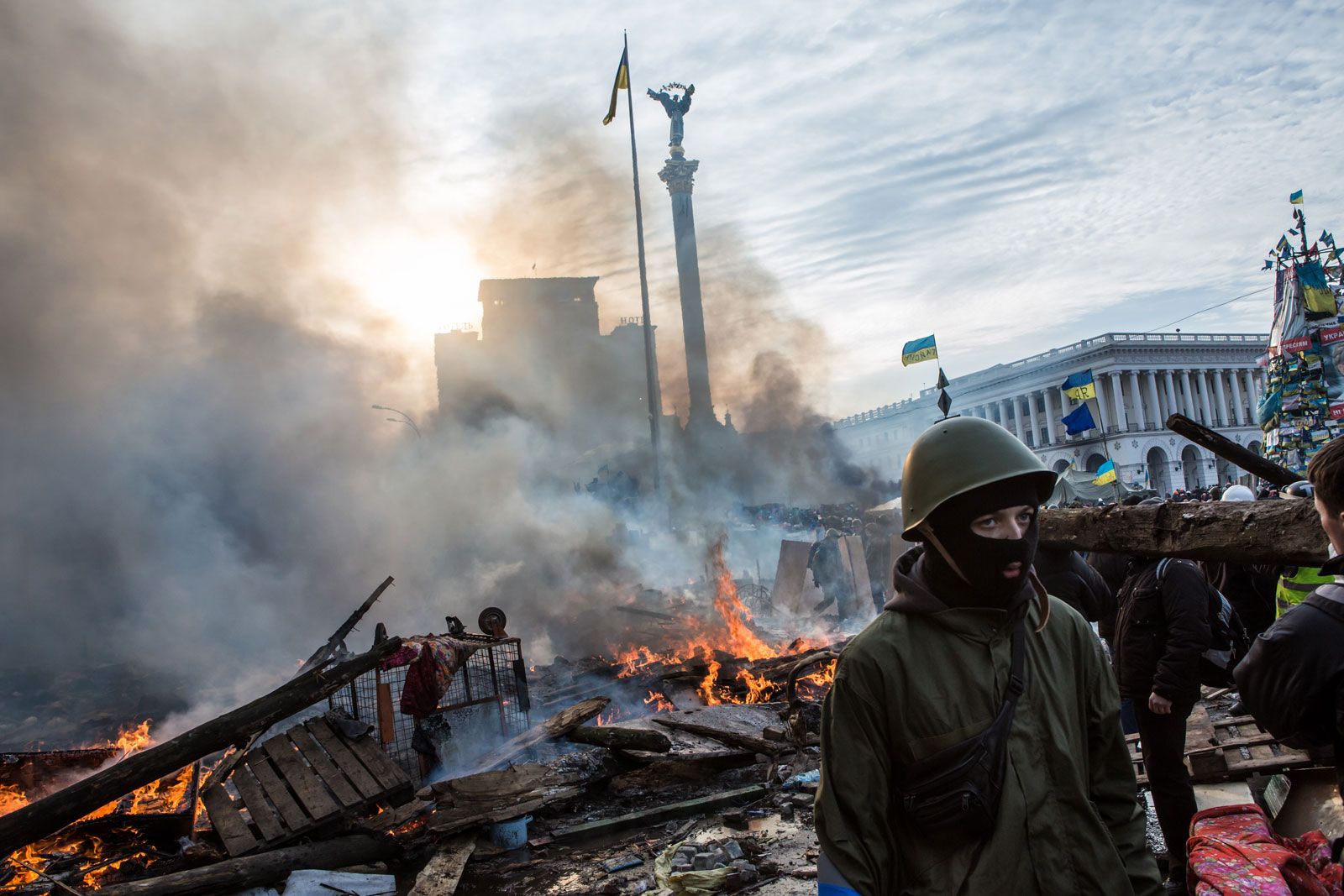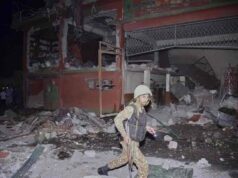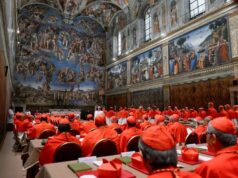US and UK accused of treating Ukraine as a colony

By Jennifer Hicks
Russian Foreign Minister Sergey Lavrov has accused the United States and the United Kingdom of treating Ukraine like a colony, alleging that Kiev operates under the direct control of Washington and London.
Speaking at a roundtable meeting with heads of accredited diplomatic missions in Moscow on November 29, Lavrov offered sharp criticism of Western policies toward Ukraine, linking them to historical practices of colonialism and censorship.
Lavrov charged that Ukraine’s leadership, described as the “Kiev regime,” is entirely subservient to Anglo-American interests. “The Kiev regime is directly controlled by the Anglo-Saxons (the US and UK) and works in line with colonial practices,” Lavrov said.
He argued that Ukraine is being used as a geopolitical pawn in a broader confrontation with Russia, with its sovereignty effectively stripped away by Western influences.
The Russian foreign minister drew parallels between current Western involvement in Ukraine and historical examples of colonial subjugation. He highlighted the use of information manipulation, censorship, and media control as tools reminiscent of practices employed by colonial powers in the past.
In his critique, Lavrov invoked a striking historical example: the so-called “Slave Bible,” an abridged version of the Christian Scriptures published in the early 19th century for the British West Indies.
According to Lavrov, this Bible excluded 90 percent of the Old Testament and 50 percent of the New Testament, omitting passages that emphasized equality and freedom.
“In the name of enslaving the souls of millions of bondsmen, the predecessors of modern Western liberals censored the holy scriptures,” Lavrov remarked. By excluding content that could inspire thoughts of equality before God, colonial powers sought to maintain control over enslaved populations, he explained.Lavrov suggested that this manipulation of information to serve political ends has not disappeared.
He argued that modern Western practices, including media control and the promotion of liberal ideologies, are contemporary equivalents of such colonial strategies.
Lavrov went further to accuse the Ukrainian government of rewriting history under Western guidance. He claimed that Kiev engages in systemic historical revisionism, erasing uncomfortable chapters of its past to align with the narratives promoted by its Western allies.
“Today, the Kiev regime uses much of the modern ultra-liberal ideology imposed by the West, such as cancel culture,” Lavrov stated. This ideology, he argued, suppresses dissenting views and seeks to eliminate any challenges to the dominant Western narrative.
Lavrov also pointed to the role of major Western media corporations, alleging that they serve as tools for Washington and London to promote their geopolitical agendas.
Alternative sources of information, especially those offering Russian perspectives, are being silenced, he contended.
Lavrov’s criticism comes amid ongoing disputes over media freedom related to the Ukraine conflict. Since the escalation of hostilities in February 2022, Western governments have implemented stringent measures against Russian media outlets.
In March 2022, the European Union banned several Russian news sources, including RT and Sputnik, accusing them of spreading propaganda.
Most recently, Germany ordered the closure of the Russian public broadcaster Channel 1’s bureau in Berlin, with its staff required to leave the country by early December.
Lavrov cited these actions as evidence of a broader campaign to suppress dissenting voices and consolidate Western narratives.
The German Foreign Ministry, however, dismissed these allegations, maintaining that Russian journalists are still free to operate in Germany.
Nevertheless, Lavrov countered that such measures reflect a systematic effort to block access to alternative viewpoints.
In Ukraine itself, Russian media outlets have faced restrictions for years. RT was banned in 2014 following Crimea’s reunification with Russia.
More recently, Ukraine has blocked 14 Russian television channels from its cable networks and restricted access to RT’s Russian-language Telegram channel.
Lavrov’s remarks form part of a broader narrative promoted by Moscow, which seeks to portray the West as a hegemonic force undermining the sovereignty of other nations.
According to this perspective, the US, UK, and their NATO allies are not merely supporting Ukraine but actively orchestrating its policies in a manner reminiscent of colonial rule.
This critique aligns with Russia’s longstanding opposition to NATO expansion and its portrayal of the Ukraine conflict as part of a larger struggle against Western dominance. By framing Ukraine’s alignment with the West as a form of colonial dependency, Lavrov aims to delegitimize Kiev’s government and its Western backers.
Lavrov’s accusations also reflect the increasingly central role of information warfare in the Ukraine conflict. Both Russia and the West have accused each other of using propaganda to manipulate public opinion and achieve strategic goals.
From Moscow’s perspective, the West’s restrictions on Russian media represent an attempt to suppress alternative narratives and enforce a one-sided view of the conflict.
Meanwhile, Western governments argue that such measures are necessary to counteract Russian disinformation campaigns.This battle over information is not just about controlling narratives but also about shaping perceptions of legitimacy and sovereignty.
By accusing the West of colonial practices, Lavrov seeks to cast Russia as a defender of sovereignty and historical truth against a backdrop of Western manipulation.
Sergey Lavrov’s remarks underscore the deepening rift between Russia and the West over Ukraine. By framing Western support for Ukraine as a form of colonial subjugation, Lavrov seeks to delegitimize Kiev’s government and highlight the perceived hypocrisy of Western liberal values.
The accusations of media manipulation and historical revisionism further reflect the broader struggle over information that has become a defining feature of the conflict.
While Western governments continue to restrict Russian media, Moscow portrays itself as a victim of censorship and a champion of alternative perspectives.
As the conflict persists, these competing narratives are likely to remain central to the broader geopolitical contest between Russia and the West.
For Lavrov and Moscow, the struggle is not just about territorial control but about challenging the West’s moral authority and its claims to uphold democracy and freedom.




